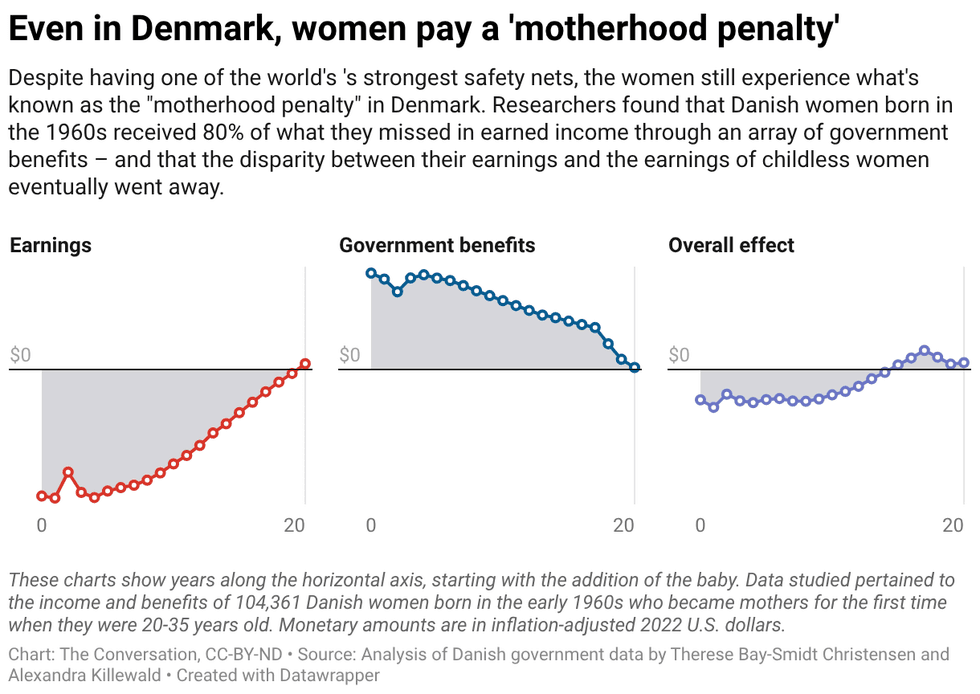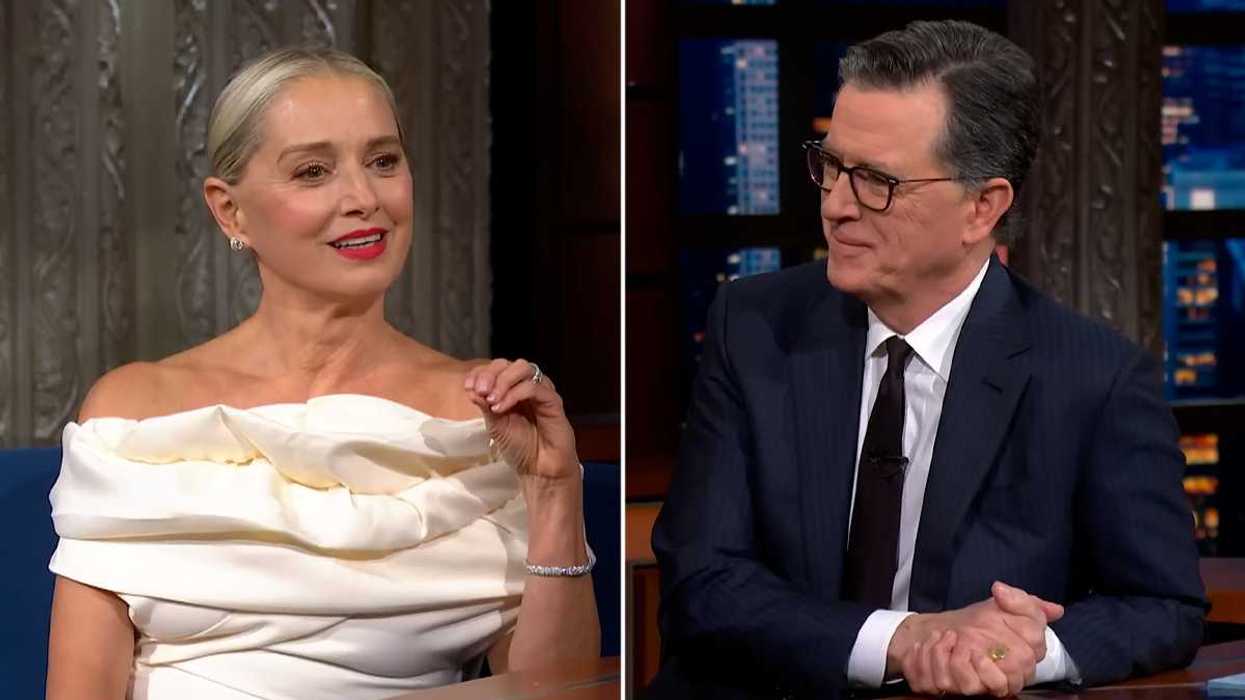We don’t need an excuse to write about free speech and the mass media—the First Amendment is always a worthwhile topic. There’s truly no particular reason we’d choose to do that in September 2025, on a lovely early-fall afternoon. Well, OK, I guess there is one natural jumping-off point: the still-simmering saga involving Jimmy Kimmel Live!, Disney, President Trump, the FCC, and displeased affiliate-station owners.
Following Kimmel’s (as of this writing) short-lived suspension following a controversial monologue joke, the concept of free speech has been top of mind for many Americans. (Just look at the Google Trends data—interest for the search term "first amendment" surged in mid-September.) It’s only natural to extend that curiosity over to your cinema or streaming platform, whether you’re looking for an intriguing documentary, harrowing biopic, or disturbing sci-fi dystopia. Here are five acclaimed films that feel especially worth watching any time—but also, maybe, especially, right now.
- YouTube www.youtube.com
1984 (1984)
Perhaps the bleakest selection on this list, Michael Radford’s adaptation of the classic George Orwell novel follows everyman protagonist Winston Smith (John Hurt), who seeks to rebel against a totalitarian regime that squashes any seed of individuality. "The 1954 film version of Orwell’s novel turned it into a cautionary, simplistic science-fiction tale," wrote Roger Ebert. "This version penetrates much more deeply into the novel’s heart of darkness."
- YouTube www.youtube.com
The People vs. Larry Flynt (1996)
Miloš Forman directed this Oscar-nominated drama, which takes a fascinating look at censorship by documenting the life of Hustler publisher Larry Flynt. Woody Harrelson stars as the controversial pornographer, who battles against institutions both political and religious. "[F]reedom of the speech is much bigger than Larry Flynt himself, you know?" Forman told NPR. "[W]e don't know what kind of terrible consequences the loss of freedom of speech can have…[O]nce you open the door to censorship, it never stops with pornography. It never stops with smut. It start to spread."
- YouTube www.youtube.com
Good Night, and Good Luck (2005)
This black-and-white historical drama, directed by and co-starring George Clooney, explores the famous conflict between CBS journalist Edward R. Murrow and Senator Joseph McCarthy—friction set against the tense backdrop of the latter’s anti-Communist crusade. Clooney recently adapted the film for the Broadway stage, this time playing the part of Murrow, and he told 60 Minutes that the film’s themes haven’t dimmed in relevance. "Governments don’t like the freedom of the press," he said. "They never have, and that goes for whether you are a conservative or a liberal—whatever side you’re on. They don’t like the press."
- YouTube www.youtube.com
The Post (2017)
Another newspaper drama based on real-life events, Steven Spielberg’s The Post examines the ramifications of The Washington Post publishing the "Pentagon Papers" in 1971. "[The film] raises all sorts of important issues about the free press in this country, about the importance of challenging authority, and also, importantly, about the role of women in our society and the importance of women holding high-level roles," raved The Post’s former executive editor, Marty Baron, in 2017.
- YouTube www.youtube.com
Zappa (2020)
With Zappa, director Alex Winter crafted a deep and fascinating portrait of Frank Zappa as a visionary composer, controversial human, and champion of free speech. Winter, best known for playing Bill in the Bill & Ted movies, gives proper spotlight to each of these three elements. But even if you object to Zappa’s avant-rock absurdity, you'll probably be fascinated by the footage where he testifies in a Senate hearing, countering the Parents Music Resource Center’s objections to supposedly explicit lyrics. Zappa, who opens his testimony by reading the First Amendment, calls the proposal "nonsense"—nonetheless, the committee’s efforts led to the creation of the "Parental Advisory" sticker.



















 A high school senior shows how to unlock a magnetic pouch that holds her smartphone at University High School Charter in Los Angeles in March 2025.
A high school senior shows how to unlock a magnetic pouch that holds her smartphone at University High School Charter in Los Angeles in March 2025. An eighth grader unlocks her cellphone from a pouch at Mark Twain Middle School in Alexandria, Va., in March 2025.
An eighth grader unlocks her cellphone from a pouch at Mark Twain Middle School in Alexandria, Va., in March 2025.
 Gif of a mom wiping her child's dirty face via
Gif of a mom wiping her child's dirty face via 
 A woman holds a family member's hand in the hospitalCanva
A woman holds a family member's hand in the hospitalCanva A bird flying across the sky under the sunCanva
A bird flying across the sky under the sunCanva
 The ‘motherhood penalty’ is largest in the first year after a mom’s first birth or adoption.
The ‘motherhood penalty’ is largest in the first year after a mom’s first birth or adoption. 


 (LEFT) Film premiere at ArcLight Theatre Hollywood; (RIGHT) LaNasa signing autographs at TIFF.thepaparazzigamer/
(LEFT) Film premiere at ArcLight Theatre Hollywood; (RIGHT) LaNasa signing autographs at TIFF.thepaparazzigamer/  Radical acceptance.Photo credit:
Radical acceptance.Photo credit: 
 Scott Galloway in Barcelona in 2025.Photo credit: Xuthoria/
Scott Galloway in Barcelona in 2025.Photo credit: Xuthoria/  Resting in the shade of a tree.Photo credit:
Resting in the shade of a tree.Photo credit:  Two people thinking.Photo credit:
Two people thinking.Photo credit: